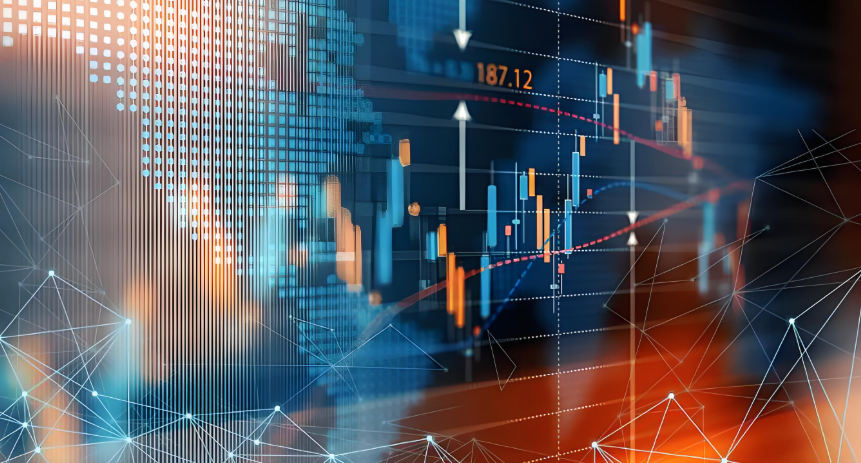Overvaluation of U.S. Stocks
Advertisements
In the ever-evolving sphere of global finance, the perspectives shared by industry titans often serve as guiding beacons for market participants. Recently, Jamie Dimon, the CEO of JPMorgan Chase, articulated some compelling remarks that have captured attention and stirred apprehension. On a Wednesday, he openly criticized the American stock market, suggesting that it is currently experiencing inflated valuations. Dimon underscored his concerns regarding a combination of risks, including escalating budgetary deficits, persistent inflation, and geopolitical instability. His assessment reflects a more cautious stance than that of many of his peers in the business world.
Dimon highlighted that certain segments of the bond market, particularly in sovereign debt, are reaching “historic highs.” He elaborated, stating that when assessed through any reasonable lens, asset prices appear to be inflated, with historical valuations positioned within the top 10% to 15%. This commentary was particularly directed towards the U.S. stock market, which has been embroiled in a prolonged bull run. Historical data reveals that the S&P 500 Index achieved back-to-back gains exceeding 20% in 2023 and 2024, a phenomenon not seen in the last quarter-century. Nevertheless, Dimon views this rapid growth as concealing underlying dangers. Remarkably, he had previously expressed that even JPMorgan's stock price seemed too high.

Dimon remarked, “So, yes, prices are indeed rising, and you need exceptionally strong outcomes to justify these prices. Establishing strategies that foster growth is essential to achieving this goal; however, there are also negative factors that might take you by surprise.” As an esteemed figure in the financial sector, the 68-year-old Dimon has skillfully steered JPMorgan into becoming the largest bank in the U.S. by a variety of metrics including assets and market valuations. Since 2022, he has consistently alerted stakeholders about an impending “hurricane” heading towards the U.S. economy. Despite the better-than-anticipated performance of the American economy in recent years, this metaphorical storm has yet to materialize; nonetheless, Dimon remains vigilant.
On that same Wednesday, Dimon reiterated his cautious demeanor, stating, “I have indeed grown more cautious about several issues. I have some reservations regarding budget deficits; this is a global issue and not solely an American problem. Related concerns include, ‘Will inflation disappear?’ I’m not particularly certain. The continually escalating global conflicts, such as tensions in the Middle East, raise my concerns regarding how these conflicts will impact the world for the next century.” In today's climate of globalization, a nation’s fiscal deficit can trigger widespread ramifications that not only affect its own economy but may also provoke rippling effects throughout global financial markets.
The unpredictable trajectory of inflation resembles a fog—difficult to pinpoint, rendering economic forecasting precarious. Additionally, geopolitical unrest casts a shadow over global economic prospects, particularly as the Middle East remains a critical region for energy resources; heightening tensions there indisputably amplify the risks of energy price volatility, which in turn affects stability within global industrial and supply chains.
The unpredictable trajectory of inflation resembles a fog—difficult to pinpoint, rendering economic forecasting precarious. Additionally, geopolitical unrest casts a shadow over global economic prospects, particularly as the Middle East remains a critical region for energy resources; heightening tensions there indisputably amplify the risks of energy price volatility, which in turn affects stability within global industrial and supply chains.
Throughout a comprehensive interview, Dimon addressed his views on tariffs imposed on imported goods, claiming that he supports such measures if they enhance national security. Furthermore, he disclosed that a previously contentious relationship with tech entrepreneur Elon Musk has considerably cooled, a subject that piqued public interest. Notably, Dimon made it explicitly clear that he has no intentions of participating in the 2028 presidential race, opting instead to continue focusing his efforts within the financial sector.
Later that evening, David Solomon, the CEO of Goldman Sachs, joined the discourse concerning the stock market. He concurred that stock market valuations are elevated; however, he posited that the enthusiasm surrounding the impact of artificial intelligence and expectations for the new government's easing of regulatory frameworks on U.S. companies is justified. Solomon noted, “The fact that stock price-to-earnings ratios are high is indisputable. The market is looking ahead, and the regulatory environment across all sectors is exceedingly rigorous. If government officials permit greater mergers to occur, fostering capital market activity, it might elevate GDP growth by half a percentage point.” His analysis presents an alternative view on potential market drivers, suggesting that the advancement of artificial intelligence technologies could unlock transformative opportunities for various industries, while regulatory policy adjustments may breathe new life into corporate prospects and capitalize on market activities.
In essence, the insights provided by these two financial heavyweights reveal that the American stock market is indeed enjoying a phase of prosperity, yet it is rife with both concerns and opportunities. Market participants are called to navigate this complex economic landscape with a discerning mindset, weighing risks against potential rewards, while staying attuned to the market’s pulse.
Leave a Reply
Your email address will not be published. Required fields are marked *